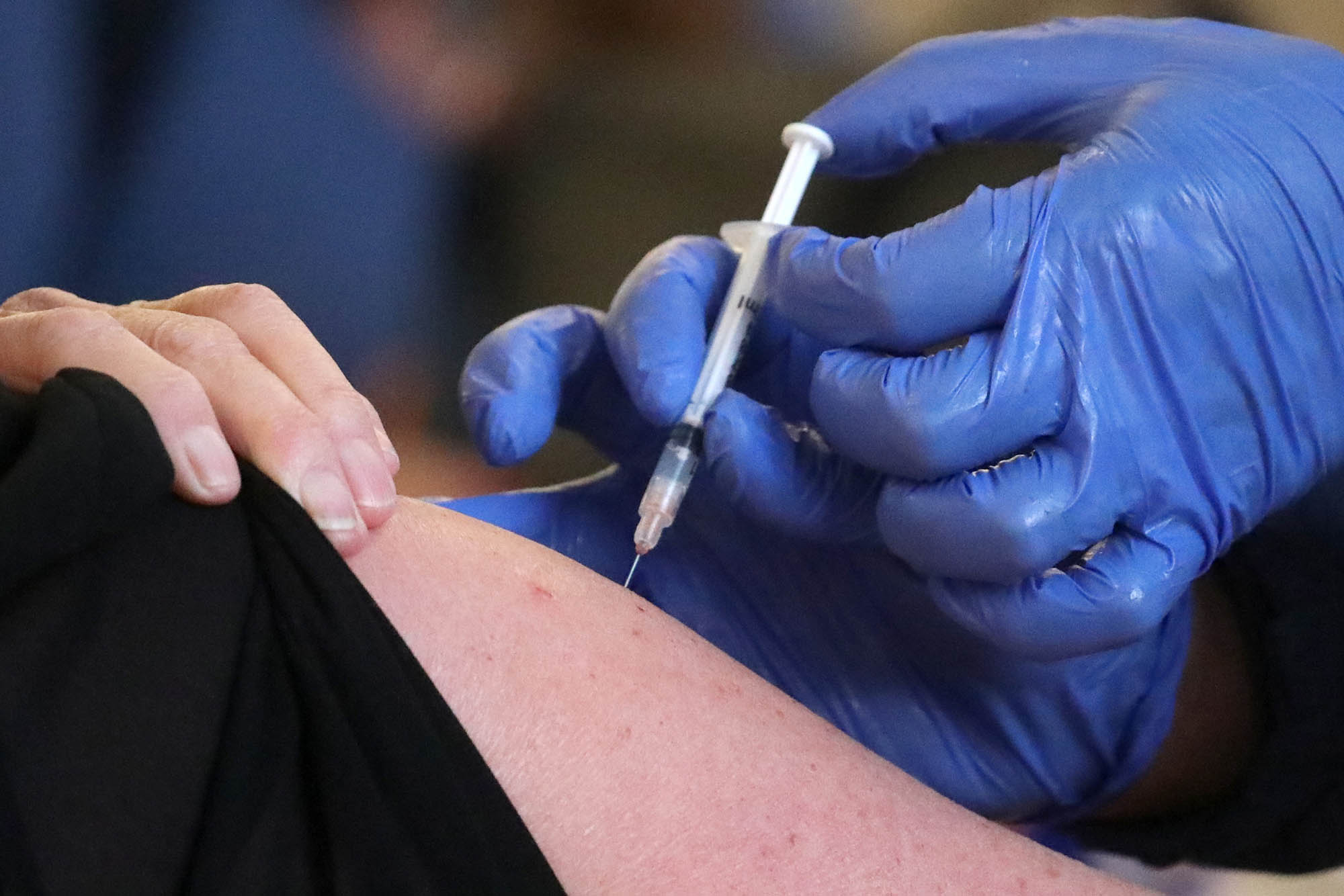Officials say everyone over 50 can get a 4th COVID shot, but 'especially important' for higher risk people
Shots could be administered within hours.
A second round of booster shots was greenlighted for everyone over the age of 50 by public health officials on Tuesday, kicking off the regulatory process for shots to likely be available in pharmacies this week.
Everyone 12 and older is already eligible for a booster shot five months after their initial vaccine series if they received an mRNA vaccine like Pfizer or Moderna, or two months after getting the Johnson & Johnson vaccine.
But for those over 50, determined to be a vulnerable age group, officials at the Food and Drug Administration and Centers for Disease Control and Prevention have decided the data on waning immunity justifies making another shot available four months after the first boost. And while anyone who meets that criteria can now get another booster, CDC Director Rochelle Walensky said it was "especially important" for those 65 and older and those 50 and older with underlying medical conditions.
"This is especially important for those 65 and older and those 50 and older with underlying medical conditions that increase their risk for severe disease from COVID-19 as they are the most likely to benefit from receiving an additional booster dose at this time," Walensky said in a statement on Tuesday.
Dr. Peter Marks, director of the FDA’s Center for Biologics Evaluation and Research, told reporters in a briefing about the decision that he would urge his own family members to heed the latest advice.
"If it were my relatives, I would be sending them out to do this again," he said. "Because after all, COVID-19 has had a really disproportional adverse effect on people 65 years of age and older and those with comorbidities."
Marks said officials decided on the age range of 50 and up because about one-third of people between 50 and 65 have significant comorbidities.
"By choosing age 50 and up ... we felt like we would capture the population that might most benefit from this fourth booster dose," Marks said.
But he also sought to emphasize that the additional booster shouldn't dissuade people from getting their initial booster, which half of eligible people have yet to do.
"Just to reiterate, the good news is that for most people who have been vaccinated and had one booster, their original booster shot is continuing to provide you with good protection from being hospitalized or dying," he said.

So far, there is limited U.S. data on second boosters. But data from Israel indicates that an additional booster shot can provide a temporary bump in protection, reducing the risk of dying for adults over 60.
Several countries, including Israel, Chile and Sweden, have begun offering fourth COVID-19 doses to older adults and other at-risk groups.
Dr. Anthony Fauci, chief medical adviser to the White House, has said he expects additional boosters would "reconstitute" people back to the maximal level of antibodies, rather than boost people higher than their previous immune responses from any of the earlier shots.
But he said the body's B cell and T cell response, which have more impact on the duration of immunity, may incrementally be increased with each additional boost.
And while Tuesday's announcement only applies to older Americans, a decision for the rest of the population is coming soon.
The FDA will convene a panel of vaccine experts on April 6 to discuss the plan. They will talk about the efficacy of booster shots and the potential need for a variant-specific booster instead of continual booster shots designed for the initial strain of COVID-19.
A decision would likely be made later this summer or fall.
For now, the feeling is that there is ample time to make that decision because boosters continue to show good protection among younger people. It would also be months before a variant-specific booster is available.
"There's reasonable evidence right now that, in younger individuals, the protection against the serious outcomes of hospitalization and death is being maintained, and although it may be dropping off a little bit, it's not dropping off in a very significant way," Marks said.
"So the feeling was, right now, to take this action for those most at risk, and obviously we'll continue to evaluate the data."
But boosting too frequently could cause fatigue, a dilemma many public health experts are weighing especially because anyone who gets a booster shot now would likely need to get another in the summer or fall if a variant-specific, more effective shot is available.
"We're going to have to learn to live with mild disease at some point," Dr. Paul Offit, director of the Vaccine Education Center at Children's Hospital of Philadelphia, told ABC News. Frequent boosting "is not a reasonable thing to do, and it's not something most people will do anyway."
Pfizer's CEO Albert Bourla has also acknowledged the impracticality of people rigorously staying up to date with shots every few months.
"We can't have vaccines every five, six months," said Bourla, speaking on CNBC. But until new-and-improved boosters are ready to go, Pfizer and Moderna executives argue fourth doses will be needed by at least some older Americans soon.
Still, the vast majority of Americans have yet to get even a first booster shot. Of the nearly 90 million fully vaccinated Americans, about half got their shots more than five months ago but still haven't gotten a booster shot.
About two-thirds of seniors have gotten their first booster shot.
ABC's Aaron Katersky reports:




